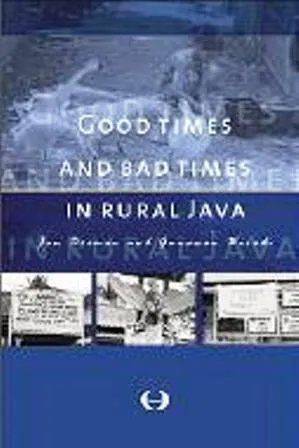Good Times and Bad Times in Rural Java: Case Study of Socio-Economic Dynamics in Two Villages Towards the End of the Twentieth Century
By (author): "Gunawan Wiradi, Jan Breman"
ISBN9067181870
ISBN139789067181877
AsinGood Times and Bad Times in Rural Java: Case Study of Socio-Economic Dynamics in Two Villages Towards the End of the Twentieth Century
Original titleGood Times and Bad Times in Rural Java: Case Study of Socio-Economic Dynamics in Two Villages Towards the End of the Twentieth Century (Verhandelingen
The causes of the Asian economic crisis have been the subject of fierce debates among economists, yet little is known about the impact on employment and wellbeing. In Indonesia, the worst affected country, the malaise turned into a political and societal upheaval which brought an end to the New Order regime. Based on anthropological fieldwork in two villages along the coast of West Java, the monograph discusses the repercussions for work and welfare in the rural hinterland. The authors criticize the policies of the government of Indonesia as well as those of other transnational agencies on what has happened and what should be done. Their micro-study on socio-economic dynamics in two localities, researched in a longitudinal perspective, argues that since the start of the crisis the poverty level, then already much higher than officially conceded, rose to include more than half of all households. In contrast to the received wisdom that the village still functions as a community, the crisis has widened the gap between the rural rich and poor. The fieldwork findings are held to justify conclusions for areas with similar structural characteristics: densely populated, with a highly skewed pattern of land distribution, long-distance labour circulation between city and countryside and involving a substantial part of the total workforce, especially the landpoor and the landless.
